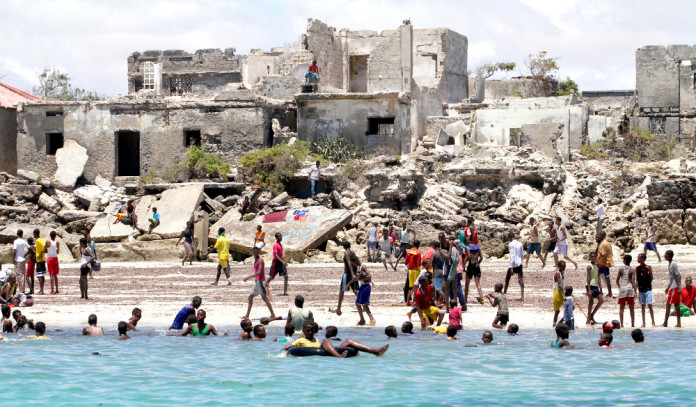Alma was five when her family moved to Yemen. This was as a result of the overthrow of Siad Barre’s government in her native Somalia which led to a civil war. Alma’s father Adow who worked as a hydro-engineer fled the country with the family to Aden, the capital of Yemen. Adow was also a writer working on a historic novel based on the Ethiopian- Somali war also called the Ogaden war. He had beautifully created characters using events which had Russia switching support for Ethiopia previously supported by the United States. He found good luck in Yemen and was immediately employed as a water resources specialist with a private construction firm.
The family’s good fortune was short lived when a cargo truck carrying harvested coffee killed Alma’s mother instantly. Her father refused to marry again and so Alma being the eldest had to take the responsibility of caring for her two younger brothers. Adow’s job kept him busy most of the times and he seldom had time for them. Adow however believed in education. Alma was sent to a private school where she learnt Arabic and English. One of her teachers discovered her passion for music and encouraged her father to enroll her in private music lessons. Adow agreed. Upon Alma’s request a music teacher was brought in to teach her.
Many of Adow’s friends and clan’s men criticized him citing reasons like “she is a girl” “she will be a slut”. He was resolute that his daughter was going to be anything she desired to be. Alma lived the music. Her soulful songs and her dexterity on the violin made her popular in the townships. Adow did not place restrictions on her. Meanwhile the civil war was almost over in Somalia and the new leaders were calling on its people in the diaspora to return and help build the country. Adow heeded the call and on the fateful day of 24th February he moved the family to Mogadishu, the capital. He had secured a job as a lecturer.
Alma and her brothers were happy although stories about militia’s terrorizing people scared them. Adow had done a good job by planting the seeds of identity in them. He taught them Somali songs and they read novels written by the famous Somali writer Nuruddin Farah. In Somalia we did this and that he will say. Alma brothers were enrolled at the University Staff School but she went to a specialist school built for girls in the heart of Mogadishu. She took courses in literature, music and history. Alma fell in love with Somali folklore and African music in general. Fela Kuti, Hugh Masekela and the strong voice of Angelique Kidjo.
The African music time on Radio Mogadishu was her favorite. It was one of the radio sections that the DJ announced a lyrics and singing competition for residents in Mogadishu. Many young people signed up for the competition. In a city where terror was visible day and night, songs were a relief. People sang daily, whether in the cold dry streets of Mogadishu, refugee camps or homeless shelters. The songs whether sung by the old or young contained words of hope, describing what the people thought they were not; helpless, weak and poor. Instead these songs from hungry stomachs and crooked ribs contained soothing words of hope and victory.
Alma’s clean and strong voice echoed in the auditorium of the musical theater in Mogadishu where the competition was being held. She belted out her favorite song “mother is gold” written as a tribute to her late mother. She mesmerized the audience with her skill and talent. Alma won the local competition in Mogadishu. It was a rainy day in Addis Ababa where the Africa Music competition was being held. Songbirds of Mogadishu led by Alma Ahmed Adow, the master of ceremony called out. She got on stage together with her Somali musical band all of its members from her school, an all-girls band.
All eyes on these teenage girls dressed in their dirac, long, light made of cotton and Somalian, not adulterated. They had travelled to make a statement to the world, that what people see in the media are just one part of the story and that to reduce people based on a single story is false. There was a new airport in Mogadishu, hospital and budding entrepreneurs mostly women who thronged the markets day and night to sell their wares. Somali women are very much in the public view although there are few in the formal sectors. Somali women farm and trade, however the current global trade policy and economic relations which has focused on growing the formal macro-economy has hindered the full potential of these women. Sadly these harsh policies have historically marginalized African women who trade and travel for trade.
With Alma as the lead singer together with her band, these songbirds of Mogadishu made their voice heard, pure authentic and soothing Somali music, filling the auditorium.











Nice to read a story about Mogadishu! Thanks guys fro sharing this one.
Mogadishu sure will change some day. God bless Somalia, God Bless Mogadishu and God Bless every place else.
Thanks Kweku, I can’t believe you would know this much about Mogadishu seeing that you are from Ghana and all. Do you live in Mogadishu?